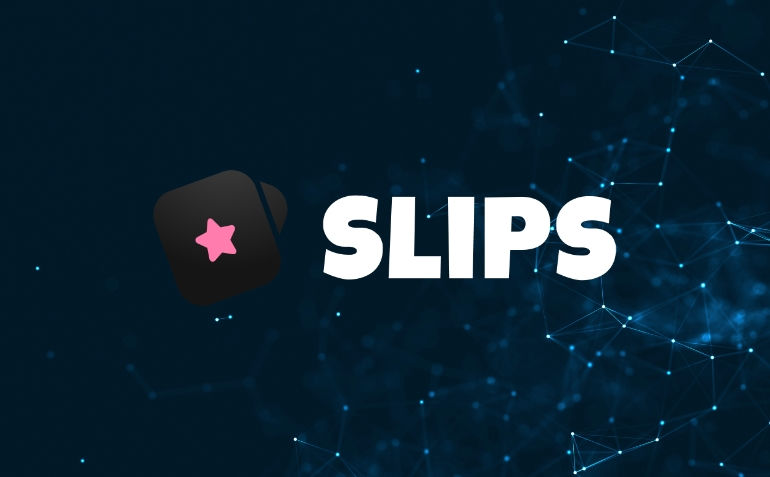P2P wagering platform Slips adds AI-powered prediction markets
- Kevin Jones

- Sep 18, 2025
- 6 min read
Slips is making a bold play at the intersection of peer-to-peer betting, prediction markets, and AI. The Los Angeles startup has unveiled an AI-driven layer designed to automatically generate and resolve markets across sports, politics, entertainment, and finance — expanding the scope of what a P2P exchange can offer. With 150,000 users already on board and $6m+ in reported winnings, the move signals both product ambition and regulatory risk. It lands as prediction markets are drawing heightened U.S. scrutiny, forcing operators to balance innovation with compliance in an increasingly fragmented landscape.

Slips, a Los Angeles-based peer-to-peer (P2P) wagering app, has launched AI-generated prediction markets that automatically spin up, price, and settle user-vs-user markets across sports, politics, entertainment, finance, and trending culture. The company positions itself as a “no house” social betting exchange with formats including Heads Up, Pools, and tournament-style “Tourlays”. Slips reports 150,000+ users (“Slippers”) and $6m+ in cumulative winnings to date (company-reported figures), and says the AI layer will expand into futures, commodities, and political outcomes. The move lands amid intensifying U.S. scrutiny of prediction markets (e.g., Massachusetts AG v. Kalshi (AG release) (complaint PDF)) and a crowded competitive set spanning CFTC-regulated exchanges, sweepstakes models, and offshore/crypto venues (e.g., Polymarket)
What’s new — and why it matters
Slips has turned on AI-generated prediction markets that (a) auto-create new markets around trending topics and storylines, (b) audit and resolve outcomes in real time, and (c) scale beyond sports into politics and finance. The company says this is fueled by integrations with large language models (LLMs), reducing manual ops around market creation and adjudication.
“Prediction markets are the natural evolution of peer-to-peer gaming, and AI is the engine that makes it limitless.” — Jess Richman, Founder & CEO, Slips.
From an operator’s lens, this is a bid to solve the two hardest problems in P2P wagering: liquidity (having enough counterparties) and surface area (enough markets to keep users engaged). AI-driven market generation increases surface area; social mechanics (leaderboards, chat, communities) aim to increase liquidity by making participation habitual. If it works, Slips can compete for time-spent not just with sportsbooks, but with X/Reddit/TikTok-fueled “trend gambling” that prediction markets increasingly enable.
Product: how Slips differs from a book
No house; all P2P. Slips emphasizes it is a social betting exchange, not a sportsbook; users bet directly against each other. House “edge” in this model typically comes from fees, not price shading. App Store disclosures and Slips’ terms underscore P2P positioning and modern payments (Apple Pay, cards, PayPal, ACH).
Formats. Pre-AI catalog includes Heads Up (winner-takes-all), Pools (split the pot), and Tourlays (tournament-style parlays). The AI layer adds a stream of topical markets with automated resolution.
Traction. Slips cites 150k+ users and $6m+ in winnings since launch, with a social layer designed to increase retention. (These are company-supplied figures; no third-party panel yet.)
Payments & UX. The iOS listing shows 4.2★/2.2k ratings, in-app purchases (monthly/annual), digital pay-ins/outs, KYC, and withdrawal timing rules (e.g., promotional or processing locks) in dev responses, all consistent with a real-money, compliance-aware wallet. For enterprise readers, this suggests a payments + KYC stack already in place for broader market expansion.
Where the AI fits in the stack
Market sourcing: LLMs scan news and social signals, then propose markets with clear, resolvable criteria. (The value is scale and speed, getting ahead of virality).
Settlement ops: Automated “audit and resolve” aims to shorten dispute windows and reduce headcount. Execution quality will hinge on source-of-truth hierarchies and exception handling.
Catalog expansion: Company says it will extend into futures, commodities, and politics — areas where resolution and jurisdictional constraints are trickier.
Operator takeaway: If AI can truly industrialise market ops, P2P catalogs become as wide as social conversation, blurring the line between “sportsbook” and “social market arcade.” The commercial upside is frequency and stickiness; the operational risk is bad markets and bad resolutions if guardrails fail.
Regulatory positioning: a moving target
Slips frames itself as a P2P exchange available only in “specified legal states,” and “not a sportsbook.” That is a common posture for U.S. social/P2P operators seeking to avoid state sportsbook licensing, while still supporting real-money play where lawful. (Slips’ site/app echo that language; availability appears state-gated.)
Why this matters now: prediction markets are converging with sports wagering — and state regulators are asserting jurisdiction. On 15 September 2025, the Massachusetts Attorney General sued Kalshi, arguing its “sports-related event contracts” are unlicensed sports wagering under state law, despite Kalshi’s CFTC stance. This is a flashing red light for any operator expanding into sports-adjacent prediction contracts, AI-generated or not.
Related frictions you should expect to diligence:
State patchwork & models: U.S. legal availability varies by state and by product construct: traditional books (state-licensed), sweepstakes (Novig et al.), couriers (lottery intermediaries, regulated in few states), CFTC-regulated event contracts (Kalshi), and offshore/crypto (e.g., Polymarket, geoblocked in U.S.). Each pathway has distinct compliance surfaces.
KYC/AML & payouts: App Store reviews highlight KYC frictions and withdrawal locks (with developer responses citing 14- and 30-day conditions). For enterprise readers, this speaks to the cost of compliance UX and customer-support load as volumes grow.
Political & financial markets: Moving into politics/commodities magnifies the regulatory lift (e.g., federal-vs-state oversight, market manipulation, data sources). The Massachusetts/Kalshi case will be closely watched by every P2P and prediction operator.
Competitive landscape
CFTC-regulated event contracts (Kalshi): National footprint via federal oversight, now in multi-state fights over sports markets. Celebrity partnerships (e.g., Daniel Negreanu) signal mainstreaming; litigation signals risk.
Sweepstakes sports picks (e.g., Novig’s pivot): Uses sweepstakes law to operate without sportsbook licenses; attractive for low-friction expansion, but prize structures and UX differ from cash wagering.
Offshore/crypto (e.g., Polymarket): Deep liquidity on cultural/political markets, but U.S. access restricted; not a viable template for regulated U.S. strategies. (Context for decision-makers, not a recommendation.)
Social P2P sports picks (Rabbet et al.): Smaller players chasing creator-led engagement with no house fees. Useful as a liquidity-via-community case study.
Slips’ wedge: A real-money P2P model that leans hard into AI-scaled market creation plus social mechanics — a different bet than sweepstakes or centralized exchange books. The question is whether AI can power high-quality, compliant markets fast enough to keep liquidity density and resolution integrity high.
Business model & unit-economics signals (what we can infer)
Revenue levers: Likely fees on P2P contests, subscription/IAP upsells (per App Store), and potentially payment processing spreads. This is structurally more SaaS/marketplace-like than a hold-driven sportsbook P&L.
Cost drivers: KYC/AML, fraud ops, customer support, data ingestion/oracle costs for resolution, and chargeback risk. As AI-generated markets scale, expect content moderation and legal review overhead to rise.
Capital & backers: Media reports name Sunset Bay Capital, Trousdale Ventures, Watertower Ventures and WSOP champion Jason Mercier among supporters — indicating a network that spans venture, sports, and web3 communities.
Risks & open questions for operators/investors
Regulatory drift: If state AGs prevail in defining many prediction contracts as sports wagering, P2P platforms could face license-or-exit decisions—state by state. Track MA v. Kalshi as a bellwether.
Resolution integrity: AI adjudication is only as strong as its sources and rules. Expect scrutiny on what counts as official, how disputes are handled, and audit trails.
Liquidity fragmentation: An ever-wider catalog risks thin markets. Social loops help, but Slips will need market curation, creator seeding, or market-maker incentives to keep spreads tight and participation real.
Payments & user trust: Public reviews flag payout friction; Slips’ responses cite policy-based locks and KYC. That’s common, but at scale can become a brand-level trust issue without white-glove CX.
What to watch next (6–12 months)
Catalog expansion into futures/commodities/politics — and whether those survive state challenges.
Case law/regulatory actions affecting event-contract markets (MA/NJ/NV/MD trajectories for Kalshi). Outcomes will shape how P2P apps structure sports-adjacent markets.
Partnerships (creators, media, leagues, or data providers) to seed liquidity and establish trusted resolution oracles.
Safety controls: automated content filters for harmful or non-resolvable prompts, plus RG tooling—especially if politics and global events are in-app.
International expansion strategies where P2P may be simpler or strictly prohibited; Slips’ language hints at global ambitions pending legal clarity.
If Slips’ AI can reliably generate resolvable markets and cleanly adjudicate outcomes, this is a meaningful step toward “infinite surface area” P2P wagering. The opportunity is a low-inventory-risk business with social-led frequency; the constraint is jurisdictional gravity. With prediction markets moving into the political and sports mainstream — and with state AGs sharpening knives — Slips is entering the right product at the hardest possible time. For operators and suppliers, the strategic question is whether to build, partner, or license an AI-market engine — and, crucially, under which regulatory wrapper.



